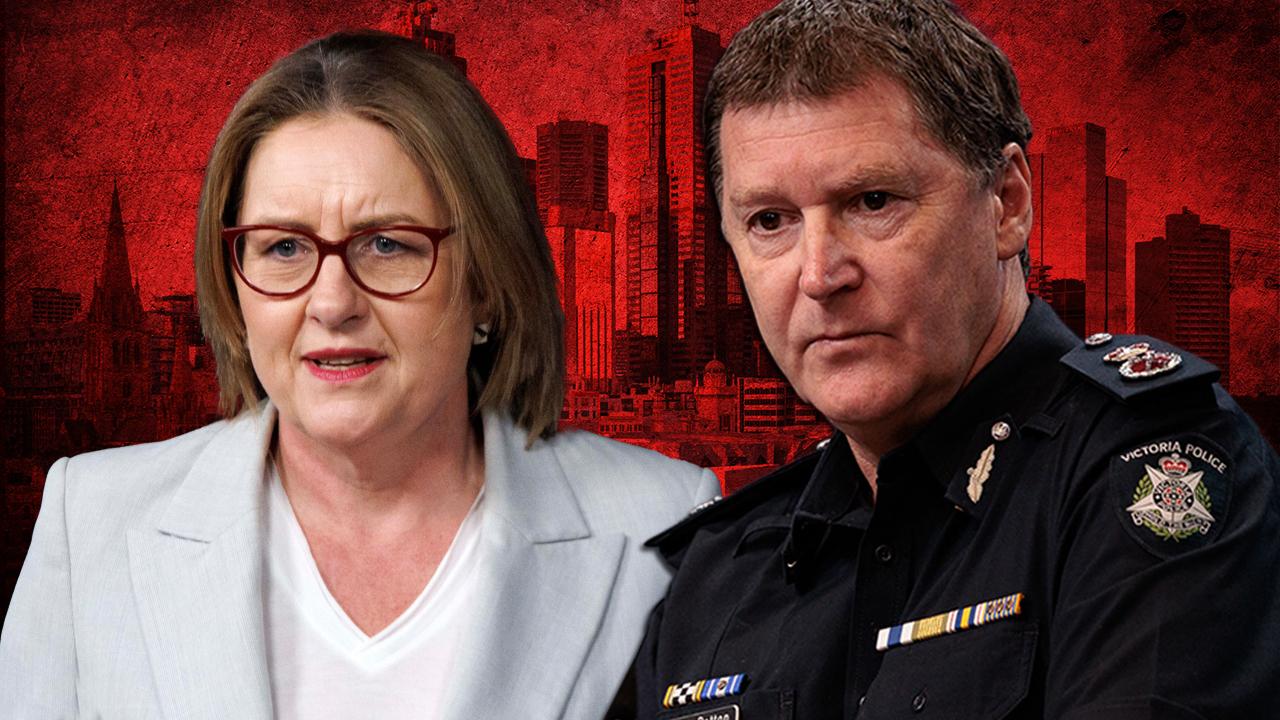How complicated extradition process allows many crims to evade the law
For every long-range arrest set up overseas — after many years and much money — plenty of fugitives remain one step ahead of the law and out of reach.
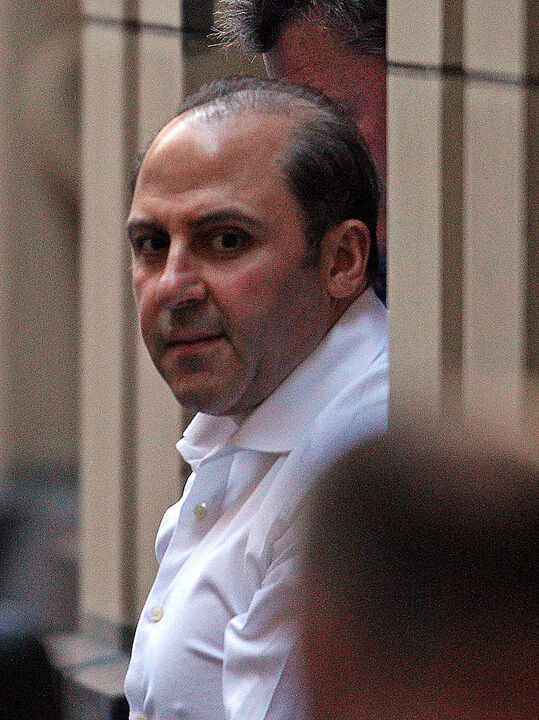
Opinion
Don't miss out on the headlines from Opinion. Followed categories will be added to My News.
They are over there. Killers, rapists and drug dealers who fled from Australia a step ahead of the law and have kept out of reach ever since.
For every long-range arrest set up overseas after many years and much money, plenty of fugitives stay free. We’ll get to those, including the man who stuffed his wife in a wheelie bin before taking a cab to the airport.
Sometimes the authorities swing and miss, the way they did in the farcical pursuit of Robert “Aussie Bob” Trimbole for six years after he was tipped off to get the hell outta dodge city (alias Sydney) by a bent cop in 1981.
All Trimbole had to do in those simpler times was to alter the birth date on his exit documents by one day, and the system wouldn’t flag him.
It’s handy if you’ve got a tame cop to spot the loopholes in the system, and Trimbole could afford the best of the worst when it came to police, customs and jockeys.
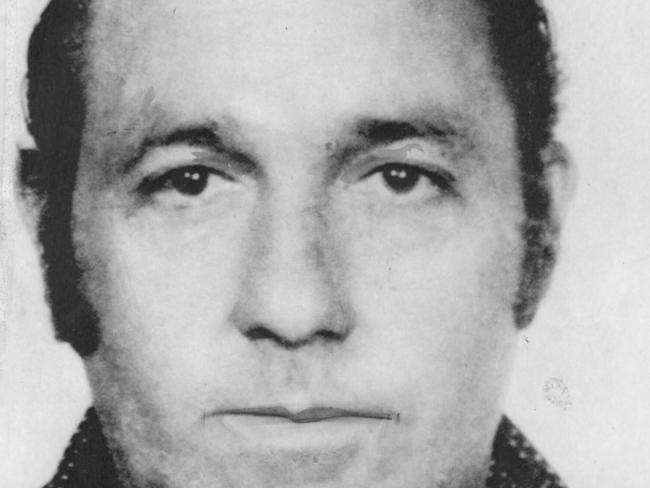
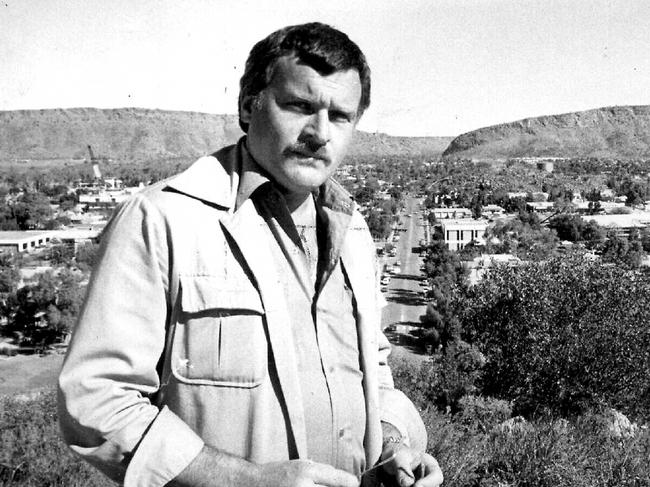
That great Australian correspondent Bruce Wilson wrote a scathing description of the slow-motion Trimbole pursuit, which suggested that if the tubby little mafia fixer from Griffith was the world’s most wanted man, then the second most wanted could sleep soundly.
Not that Wilson was bagging the investigators, just their efficiency. Trimbole died of cancer in his own bed in Spain in 1987, loved ones at his side, while Canberra’s finest were still tracking elephants through snow elsewhere.
Tony Mokbel’s escape from Australia was more ingenious and expensive than Trimbole’s, given it involved sailing a customised yacht complete with Greek crew. But it was ultimately less effective.
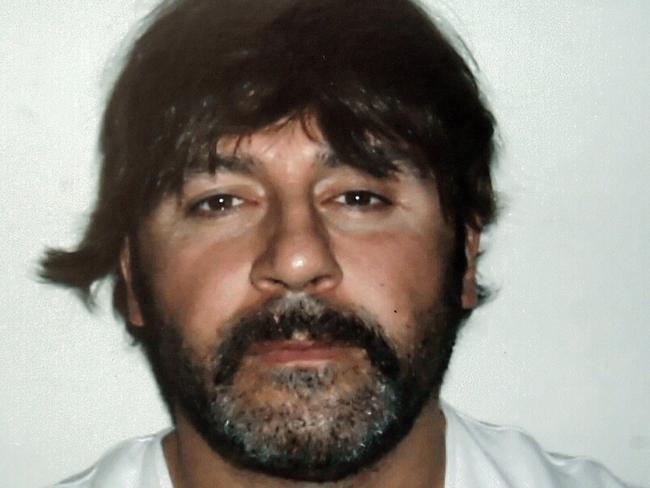
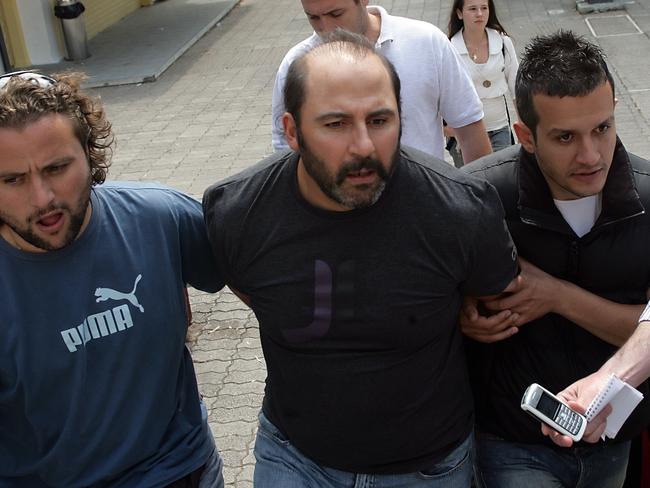
The whistleblower codenamed “The Musician” stepped up, handing investigators information taken from a laptop used by a Mokbel lieutenant to direct funds to elusive overseas accounts. There were also telephone numbers indicating “Fat Tony” was somewhere near Athens.
That one courageous act by a man with a conscience (and a grievance) nailed Mokbel after much time and expense had been spent previously.
One notable dead end was a superb identity switch in Italy when investigators shadowing Mokbel’s Melbourne girlfriend Danielle McGuire were bamboozled when she changed clothes (and perhaps a wig) with an Aussie actress recruited for the role.

McGuire slipped out the back door of a fancy hotel and vanished across the border while Inspector Clouseau kept an eye on the lady in McGuire’s distinctive-coloured coat sitting alone while her friend was supposedly in the bathroom.
Had the actress concerned ever been paid more for a television drama than she was for her real-life role in Rome?

It’s easy to joke about McGuires and Mokbels but there’s nothing funny about what happens in most runaway criminal cases.
One of the worst of a long list unfolded almost a year ago when a charismatic wife and mother vanished from the Point Cook home she shared with her husband and three-year-old son.
No one knew the fate of Chaithanya “Swetha” Madhagani before a call from India prompted police to look for a large wheelie bin beside a lonely gravel road at Buckley, west of Geelong, 80km from her home.

Police found Ms Madhagani’s body in the bin around noon on Saturday, March 9. Her husband, Ashok Raj Varikuppala, apparently dumped it there before fleeing to India the previous afternoon.
It seems the twitchy husband and bewildered little boy had gone to Melbourne Airport from Point Cook by taxi in time for an overnight flight.
The husband’s in-laws in Hyderabad were woken at 4am local time to hear the terrible news of their daughter’s death from the only man who knew about it.
He told them their daughter had died while he was trying to keep her quiet (in other words, smothered or strangled) during an argument.
He left the boy with the family and relayed information to Victoria Police about the body’s location.

Varikuppala left quickly and hasn’t been seen by his wife’s family since — although it seems his own family has since offered them four acres of land and money to help raise the child.
Police do not reveal information about attempted extraditions but it seems the search for Ashok Raj Varikuppala has come up empty. Or that the process is so convoluted that it has choked on red tape.
The wanted man is from southern India, home to 250 million people. Cities like Hyderabad and Bangalore have big IT industries so a skilled, bilingual IT operator like Varikuppala would get work, especially if he could “modify” identity and educational documents to mask his movements.
It is not beyond belief that the self-admitted wife killer is being helped by relatives or friends and that some local police are not highly motivated to find him.
His home-ground advantage is that he’s a needle-in-a-haystack proposition and might be able to dodge official Australian requests for his arrest. But there are other possibilities.
Indian security sources say it’s possible for a resourceful fugitive to reach either Sri Lanka by boat or Nepal by road and then obtain a forged passport that would get him to certain south-east Asian countries with relatively lax border controls.

Like Trimbole in Ireland and Spain, a wife-killer can probably stay one tip-off ahead of the posse for years in a subcontinent where many thousands of “brides” die violently every year, sometimes burned to death.
Even when Australian police do get a result, it can take years of dogged long-range work. A shining example is the eventual arrest of three Thai nationals for the vicious stabbing murder of a “good samaritan”, Luke Mitchell, in Brunswick in 2009.
Mitchell, a chef aged 29, had been enjoying a night out with his sister-in-law Daniella and her friends when they saw the Thai men attacking a bystander who had asked them to stop harassing a woman outside a massage parlour.
Daniella called out to the men to leave the bystander alone. When the three turned on her, Luke Mitchell stepped in.
A fight broke out, which ended when Mitchell was pulled away by his sister-in-law. They then went to a nearby 7-Eleven store.
The three Thais armed themselves with knives and a meat cleaver and came for Mitchell, attacking him in a frenzy in front of witnesses.
Homicide squad investigators identified three Thai nationals within hours but they were already high in the sky, flying to Bangkok via Hong Kong.
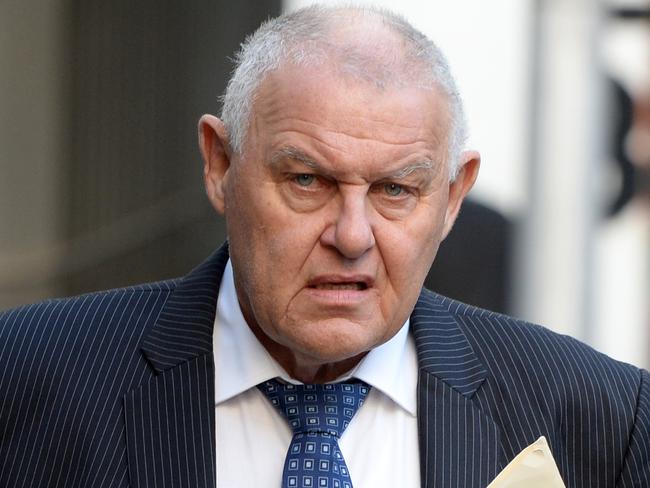
Former senior sergeant Ron Iddles says police contacted Hong Kong authorities. The trio could not be arrested but were photographed. One showed signs of being in a brawl.
What would have been a simple prosecution here dragged on for three years with slow extradition processes and unforeseen complications.
At one stage, police moved to arrest one suspect at a hotel but he had already gone.
“Quite clearly, he got tipped off,” Ron Iddles said this week.

Later on, local police said they could not keep watching a suspect unless they received money.
In the end, all three men were brought back to Victoria and jailed, two copping extra-long sentences after the third gave evidence against them.
Sometimes, the hunt is doomed from the start.
Many years ago, homicide investigators identified Chinese students as suspects in a murder at Box Hill, but they were gone by the time the fact was confirmed.
“Kiss it good-bye. You’ll never find them in China,” a source said. And was proven right.
Even more disturbing, given the public nature of the offence, was the escape of the shooters who sprayed Sam “The Punisher” Abdulrahim with bullets when they ambushed him at a family funeral at Fawkner cemetery in 2022.
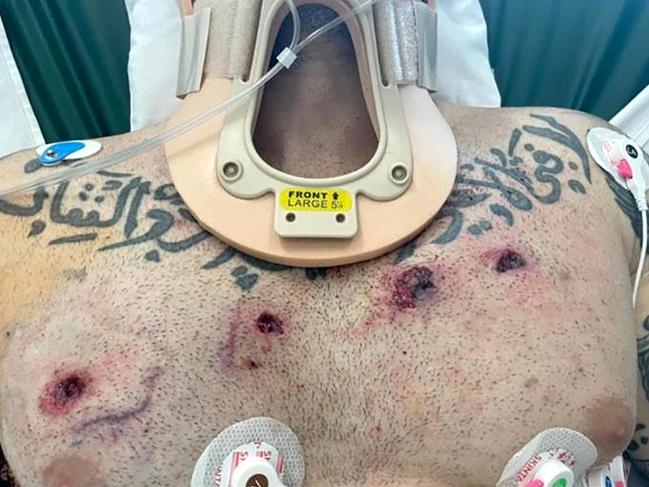
They hit Abdulrahim in the chest but didn’t stop him, then crashed their getaway car into a fire hydrant.
One genius with a jumper over his head then jumped into a dumpster full of cardboard but didn’t like it and leapt out a few seconds later, letting the garment fall and revealing his face. His mate wasn’t much better.
But, somehow, the gang that couldn’t shoot straight got to the airport in time to catch a flight to Dubai. Once they landed, they vanished, presumably looked after by a Middle-Eastern paymaster orchestrating the war against Abdulrahim that ended with his death late last month.
The Fawkner shooters and the Thai killers were not blocked at the airport because police did not yet have the evidence on which to base arrests. It was the same following the horrific rape of a Melbourne mother by two Indian men who fled overseas soon afterwards.
The victim had gone to an Oakleigh service station to buy orange juice for her diabetic son in the early hours of October 3, 2010, when the predators forced her into a Mitsubishi Lancer.
She woke up, bleeding and dazed, five hours later on North Rd. The suspects, both international students, flew to India before police could identify them.
The difficulty of getting extradition from India was highlighted in the notorious case of killer driver Puneet Puneet, who jumped bail in 2009 using a friend’s passport.
Puneet had admitted guilt in killing Dean Hoftsee with criminally culpable driving but has been able to dodge every attempt to haul him back from India to face prison for an offence not regarded as seriously there as in Australia.
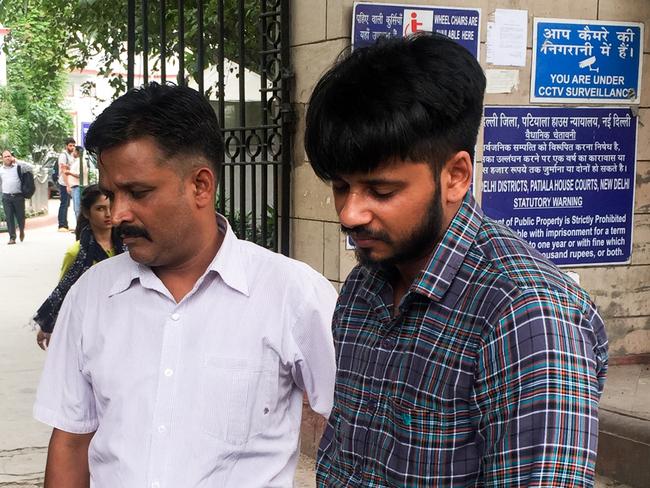
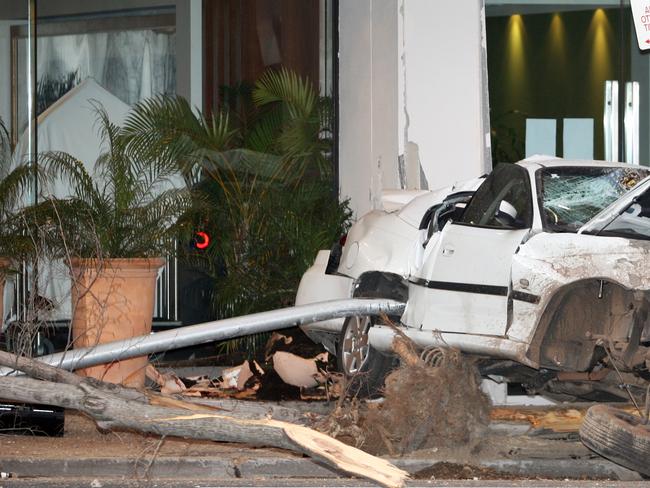
Comanchero and former male model Hasan “Handsome Tool” Topal has not been seen around since 2019 when he jetted overseas, leaving behind a string of shooting victims and interested police.
Topal has been embracing the country of his forebears while avoiding arrest or ambush back here, while still managing to do business remotely.
Good looks haven’t helped Topal’s aim; he is a suspect in two wrong-victim homicides dating back to 2017.
The target in one incident was the late Mohammad “Afghan Ali” Keshtiar who was marked to die at his Narre Warren home. The shooter botched the assignment and shot Zabi Ezedyar, an innocent visitor.

It was a lucky break for the intended victim but not a permanent pardon. Afghan Ali was later shot dead in South Yarra.
Topal is also a suspect for the botched shooting of several Bandido bikies on the Bolte bridge.
Of course, any case in which suspects have not been charged or even interviewed makes extradition even more difficult than in the Puneet case.
Sometimes, they do return home, but not to face justice on Earth. One Middle-Eastern organised crime figure and businessmen who fled Australia to escape police returned a decade later without a struggle … because he was in a coffin.
He received an extraordinarily lavish funeral. One fit for a drug king.
Originally published as How complicated extradition process allows many crims to evade the law

